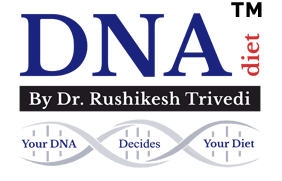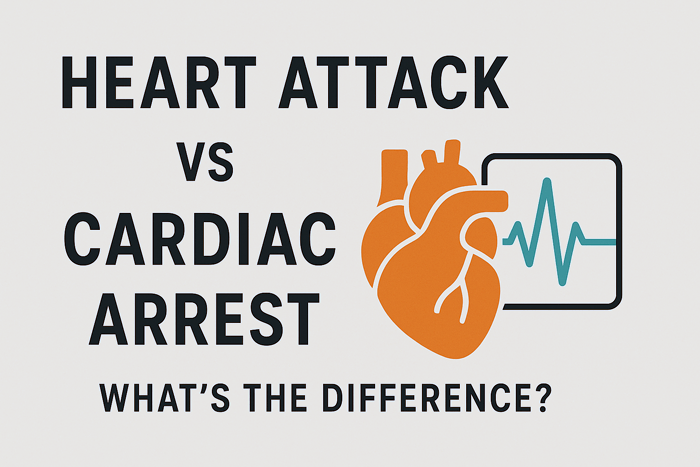Heart Attack vs Cardiac Arrest – What’s the Difference?
When someone suddenly collapses, clutches their chest, or becomes unresponsive, most people assume it’s a heart attack. However, it could also be something even more serious — a cardiac arrest. While both are related to the heart and often confused with each other, they are two entirely different medical emergencies. Understanding the difference can help you respond correctly and potentially save a life.
A heart attack, medically known as a myocardial infarction, occurs when blood flow to a part of the heart muscle is blocked, usually by a clot in one of the coronary arteries. This blockage prevents oxygen from reaching that part of the heart, causing damage to the muscle. The person is typically conscious during a heart attack and may experience symptoms such as chest pain or pressure, pain radiating to the arm, jaw, or back, shortness of breath, cold sweats, nausea, or extreme fatigue. These symptoms may develop suddenly or gradually, and the person may remain awake and alert for some time, depending on the severity.
On the other hand, a cardiac arrest is when the heart suddenly stops beating altogether. This is caused by a malfunction in the heart’s electrical system, leading to an irregular heartbeat (arrhythmia) or no heartbeat at all. As a result, the heart can no longer pump blood to the brain and other vital organs. The person collapses, becomes unresponsive, stops breathing, and has no pulse. Cardiac arrest happens suddenly and without warning, and unless CPR (cardiopulmonary resuscitation) and defibrillation are started immediately, the person can die within minutes.
While a heart attack is a “circulation” problem — related to blocked blood flow — cardiac arrest is an “electrical” problem, where the heart’s rhythm stops. It’s important to note that a severe heart attack can sometimes trigger cardiac arrest, but not all cardiac arrests are caused by heart attacks, and not all heart attacks lead to cardiac arrest.
Recognizing the signs and responding correctly can make all the difference. If someone is having a heart attack, they may still be breathing and conscious. Keep them calm, help them sit or lie down in a comfortable position, call emergency services immediately, and offer aspirin (unless allergic), as it may help reduce blood clotting. Don’t allow them to eat or drink anything more unless advised by a healthcare provider.
If someone is experiencing a cardiac arrest, their condition is far more critical and urgent. The person will be unresponsive, not breathing, and without a pulse. In such a case, call for emergency medical help immediately, begin CPR without delay, and use an automated external defibrillator (AED) if available. Performing high-quality chest compressions until medical help arrives can mean the difference between life and death.
Both conditions are life-threatening, but the response required is very different. A heart attack requires medical intervention to restore blood flow, often through medication, angioplasty, or surgery. Cardiac arrest, however, demands immediate CPR and defibrillation to restart the heart and restore blood circulation.
It’s also worth highlighting that both conditions often result from long-term risk factors such as high blood pressure, high cholesterol, diabetes, obesity, smoking, stress, lack of exercise, and poor diet. Early lifestyle interventions can drastically reduce the chances of both heart attack and cardiac arrest.
If you’re concerned about your heart health or have a family history of cardiac issues, it’s essential to take proactive steps. Personalized lifestyle and dietary changes can make a significant difference. Rather than following a generic diet, your body may benefit more from a DNA-based nutrition plan that addresses your specific genetic makeup and risk factors.
For a customized, science-backed approach to improving heart health, managing weight, and preventing lifestyle diseases, consider consulting DNA Diet Clinic by Dr. Rushikesh Trivedi.
Call: 099133 30931 to book your consultation today.


